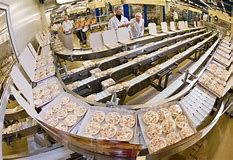 Frozen foods are generally high quality because the freezing process locks in nutrient values. This is especially true of fruits and vegetables when frozen at their peak ripeness. Frozen fish, while maybe not as tasty of fresh, is also high quality in terms of nutritional value. Frozen foods are cheaper too. A few days ago I found a medium size bag of frozen blueberries (about 2 times the amount in those fresh containers) for $2.50. I also looked at tilapia and decided that the fresh didn’t look all that fresh, so I bought frozen.
Frozen foods are generally high quality because the freezing process locks in nutrient values. This is especially true of fruits and vegetables when frozen at their peak ripeness. Frozen fish, while maybe not as tasty of fresh, is also high quality in terms of nutritional value. Frozen foods are cheaper too. A few days ago I found a medium size bag of frozen blueberries (about 2 times the amount in those fresh containers) for $2.50. I also looked at tilapia and decided that the fresh didn’t look all that fresh, so I bought frozen.
Frozen foods are ultra-convenient and provide an excellent option to consumers having limited cooking skill and expertise. They are precut, prewashed, and then frozen, which makes them ready to use. It is easily portable and has longer shelf life. These attributes are expected to cause a rise in demand in the U.S.
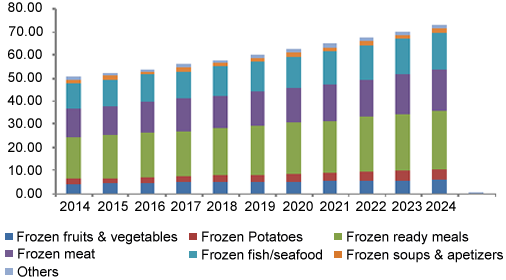
Increasing demand for frozen foods, especially frozen meals
The question today, however, addresses the carbon footprint of frozen foods.
I found two opinions about whether frozen foods are eco-friendly: “yes” or “hell no!” Let’s start with the “hell no” folks. Those who feel frozen foods have a high carbon footprint point to several issues:
- Energy costs used to process frozen foods
- Energy use because of transportation in refrigerated trucks
- Use of produce, fish, and meat from across the globe, which has already traveled a long distance at a high energy cost.
- Energy use to store frozen foods
- Use of packaging that is not recyclable.
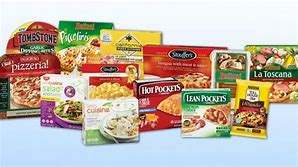 Energy, energy, energy! Energy coming and going from the field to the processing plant. Energy and water to process. Plastics to store the foods. Energy coming and going through the global transport system. Energy to store and use at home. Frozen foods have a long trail of energy consumption. And, if we are talking about freezing foods that already have a high carbon footprint because of their production method, like animal products, we are talking about a CRAZY HIGH carbon footprint for frozen foods. If we are talking about frozen vegetables, which take less energy to process than other foods and which also have the highest level of waste, then freezing makes sense. As for the energy costs for home storage in a freezer, we are talking about electricity, which is potentially from a clean energy source, like solar or hydroelectricity.
Energy, energy, energy! Energy coming and going from the field to the processing plant. Energy and water to process. Plastics to store the foods. Energy coming and going through the global transport system. Energy to store and use at home. Frozen foods have a long trail of energy consumption. And, if we are talking about freezing foods that already have a high carbon footprint because of their production method, like animal products, we are talking about a CRAZY HIGH carbon footprint for frozen foods. If we are talking about frozen vegetables, which take less energy to process than other foods and which also have the highest level of waste, then freezing makes sense. As for the energy costs for home storage in a freezer, we are talking about electricity, which is potentially from a clean energy source, like solar or hydroelectricity.
As for the packaging problems, I discovered that the frozen food industry is developing new, plastic-free packaging. You can read about one example here.
Some folks, most of whom are part of the food industry, claim that frozen foods are more eco-friendly than it seems. Their best argument centers on the food waste issue. Globally, one-third of all food is wasted. Freezing reduces that waste, starting at the processing plant, during transportation and at home. It definitely reduces home waste, where fresh vegetables may languish unused in the veggie bin. In theory, this decreased waste makes carbon footprint lower.
My thoughts about freezing and what will I do now that I have vowed to lower my carbon footprint? LIke every other point in the food chain, we have some good and bad options.
I say no to the nasty, planet polluting animal products. These foods also seem to be the most processed, like frozen pizza, frozen dinners and veggies dripping in sauces and so their energy costs to process and freeze are too high. Foods that are highly processed are bad for the planet and for our health.
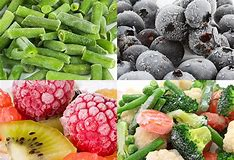 I say yes to plain vegetables and fruits,and I will look for newer, better packaging. I find many people talking about “relative” carbon footprints. That seems to mean that if we give up meat products we can spend our carbon allowances on more eco-friendly products, like frozen vegetables.
I say yes to plain vegetables and fruits,and I will look for newer, better packaging. I find many people talking about “relative” carbon footprints. That seems to mean that if we give up meat products we can spend our carbon allowances on more eco-friendly products, like frozen vegetables.
What about stuff frozen at home by the consumer? Everything so far has focused on commercial freezing. Home freezing is another thing, and it becomes an awesome way to preserve homegrown or local produce. This eliminates the entire shipping network and all those carbon costs, using only electricity to store foods. I have considerable experience freezing homegrown produce and it is not that hard (blanching first preserves quality). I know people who pop their store-bought veggies into the freezer without processing, which is okay for a short time but the enzymes will destroy it over time.
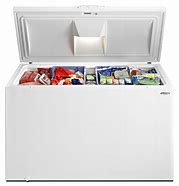 Another eco-friendly use of the freezer: storing cooked foods for later use. I advocate cooking once and using several times, which saves cooking fuel. Beans are the best example: cook a pot of beans and freeze what you don’t need that day. If you freeze in small portions, they are more usable. My own small, RV freezer is always packed with cooked stuff. Right now it contains single portions of cooked turkey, beans, hubbard squash, apples, and chicken soup. I also have a bag of blueberries, one of the superfoods. This saves so much energy and also reduces my personal food waste. These frozen foods also ensure a supply of nutritious food options.
Another eco-friendly use of the freezer: storing cooked foods for later use. I advocate cooking once and using several times, which saves cooking fuel. Beans are the best example: cook a pot of beans and freeze what you don’t need that day. If you freeze in small portions, they are more usable. My own small, RV freezer is always packed with cooked stuff. Right now it contains single portions of cooked turkey, beans, hubbard squash, apples, and chicken soup. I also have a bag of blueberries, one of the superfoods. This saves so much energy and also reduces my personal food waste. These frozen foods also ensure a supply of nutritious food options.
So, like everything else, freezing is sometimes eco-friendly and sometimes not. To keep my frozen food carbon footprint down, I will reject processed, frozen meals, especially those with meat products. Ice-cream, a dairy product, is a no-no; however, I am enjoying some of the non-dairy ice-cream, like Halo Top. I will buy frozen fruits and vegetables and continue to freeze cooked foods. If I had a bigger freezer I would also freeze in-season fruits and vegetables.


